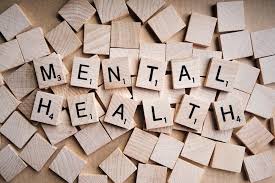 Mental health encompasses a persons, mental, psychological and social well-being.
Mental health encompasses a persons, mental, psychological and social well-being.
Before COVID–19, the rates of mental illness in England had already been slowly rising, with cases growing from 17.5% in 2000 to 18.9% in 2014. For children and young people, the latest evidence shows that the rates of mental illness may be increasing even faster than amongst adults.
The rates of people with mental disorder have risen from an estimated 1 in 8 to more than 1 in 6.

Students have also been affected, and Ryan Wilkinson from the Liverpool Light charity said: “There’s a whole ‘man up’ thing as well. Like in uni, you know all going to party every weekend and like I think it’s just brushed aside.”
“And I think there’s this whole stigma of, ‘uni should be the best time of your life’.”
“So I think that prevents people from speaking up. I think there’s a lot of academic pressure as well.”
Mollie Grant, also from the Liverpool Light charity, said: “We don’t get to take care of yourself and you’re juggling a million things at once and wearing 100 hats and there’s a lot of people just have that outlook of ‘Oh, you’re just a student, you’re only in lectures three times a week. How hard can it be?'”
“But it is actually really hard.”
- Listen to Lucas Wright’s audio report here:
Is it essential that we don’t underestimate the importance of mental health amongst students. Good mental health and wellbeing is essential – it helps them to learn effectively, cope with day-to-day challenges and develop as young adults.

Mollie added: “The mental toll that university takes alone it’s a stressful time of life, just as it is.”
“And especially if you’re coming from, you know, if you’re an international student or if you’re coming from a town that’s far away and you’re struggling with homesickness and you’re in a new place, you’ve not got any friends.”
“It’s a really, really difficult transition…And if you’ve got, you know, places at home that you can go to or people at home, suddenly they’re not there anymore.”
“So it’s really hard to kind of find your feet and cope with all of the added stresses of being a student.”
- Watch Lucas Wright’s video report here:
There are many ways that students can receive help for these problems, such as talking to someone, exercising, getting enough sleep, avoiding alcohol and drugs, and seeking professional help.
Mollie explained: “I think it’s really important to speak to someone about it, even if it’s, you know, an academic advisor or if you don’t want to speak to someone in the uni, maybe speaking to someone at home, a friend or a trusted family member, or if you have a job like a colleague and really communicate how you feel.”
“Because if you don’t talk to people about it, people aren’t going to be able to help you. And it’s always better rather than suffering in silence.”
Ryan added:” There’s also obviously, university well-being teams. They can be hit or miss, but it is really important to just try and access those because that’s what they’re there for.”
“And if that doesn’t work out then looking into alternative services.”
Featured image (c) Lucas Wright









